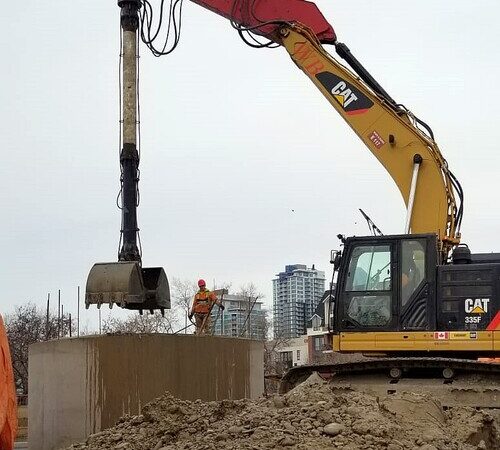In the industrial landscape of Ontario, where efficiency and productivity are paramount, acquiring reliable used equipment can be a game-changer for businesses seeking to optimize their operations. Whether you’re a manufacturing facility, construction company, or any other industrial entity, the task of finding trustworthy sellers for used equipment can be daunting. Let’s explore various avenues – both online marketplaces and dealership networks – to help you navigate the terrain of acquiring used industrial equipment in Ontario, along with best practices for ensuring a successful transaction.
The Landscape of Used Industrial Equipment Market in Ontario
Ontario boasts a robust industrial sector, encompassing a wide array of industries ranging from automotive manufacturing to food processing. With such diversity, the demand for industrial equipment, both new and used, remains consistently high. However, finding reliable sellers amidst the abundance of options requires a strategic approach.
Online Marketplaces:
- Kijiji: Kijiji is a popular online classified platform which services all of Canada, offering a plethora of listings for used industrial equipment. While it provides a vast selection, buyers should exercise caution and thoroughly vet sellers to ensure reliability and authenticity of the equipment.
- eBay: eBay’s global reach extends to Ontario, making it a viable option for purchasing used industrial equipment that may not necessarily available in their current region. This is particularly useful for more specialized and niche industrial equipment. Buyers can benefit from eBay’s buyer protection policies, but thorough research on sellers’ reputations is imperative.
- Marketplaces Specific to Industrial Equipment: Platforms like Machinery Trader, EquipmentPatrol, and IronPlanet specialize in industrial equipment listings, providing a curated selection tailored to the needs of businesses. These platforms often feature comprehensive descriptions from both dealers and private sellers as well as specialize in this equipment vertical.
Dealerships:
- Authorized Dealers: Opting for authorized dealers of reputable brands guarantees the quality and authenticity of the equipment. Dealerships often offer certified pre-owned options, backed by warranties and after-sales support, instilling confidence in buyers.
- Local Dealerships: Local dealerships cater to the regional market and may have a better understanding of specific industry requirements in Ontario. Establishing a rapport with local dealers can lead to personalized services and potential cost-saving opportunities.
Best Practices for Businesses Seeking Used Industrial Equipment
- Define Your Needs: Before embarking on the search for used industrial equipment, clearly outline your specific requirements in terms of functionality, capacity, and budget. This ensures that you focus on relevant listings and avoid unnecessary expenditures.
- Conduct Thorough Research: Whether browsing online marketplaces or visiting dealerships, research extensively on available options, compare prices, and gather as much information as possible about the equipment and sellers.
- Inspect the Equipment: Whenever feasible, conduct on-site inspections or request detailed photos and videos of the equipment to assess its condition accurately. Look for signs of wear and tear, maintenance history, and any potential issues that may affect performance.
- Verify Seller Reputation: Prioritize sellers with positive feedback or reputable track records in the industry. Check for certifications, affiliations with industry associations, and customer testimonials to gauge reliability and credibility.
- Negotiate Terms: Don’t hesitate to negotiate price, warranty, and other terms with sellers to secure the best deal possible. Be prepared to walk away if the terms don’t align with your expectations or if there are doubts about the equipment’s quality.
- Ensure Documentation: Obtain all necessary documentation, including invoices, warranties, and maintenance records, to validate the authenticity of the transaction and safeguard your investment.
- Consider Financing Options: Explore equipment financing options offered by dealerships or financial institutions to ease the financial burden of purchasing used equipment. Evaluate interest rates, repayment terms, and any associated fees before making a decision.
- Plan for Transportation and Installation: Factor in transportation and installation costs when budgeting for used industrial equipment acquisitions. Coordinate with sellers or third-party logistics providers to ensure seamless delivery and setup at your facility.
- Invest in Maintenance and Support: Once the equipment is acquired, prioritize regular maintenance and seek support from authorized service providers or manufacturers to prolong its lifespan and optimize performance.
- Stay Informed: Keep abreast of market trends, technological advancements, and regulatory changes that may impact the operation and maintenance of your industrial equipment. Continuous learning and adaptation are key to staying competitive in the ever-evolving industrial landscape.
Finding reliable sellers for used industrial equipment in Ontario requires diligence, research, and informed decision-making. Whether exploring online marketplaces or dealership networks, businesses must prioritize authenticity, quality, and compatibility with their operational needs. By adhering to best practices and exercising caution throughout the procurement process, businesses can acquire used equipment that enhances efficiency, productivity, and competitiveness in Ontario’s dynamic industrial sector.
Buy & Sell Industrial Equipment for FREE
Read More: A Simple Guide for Sale and Fair On and Offline Transactions

